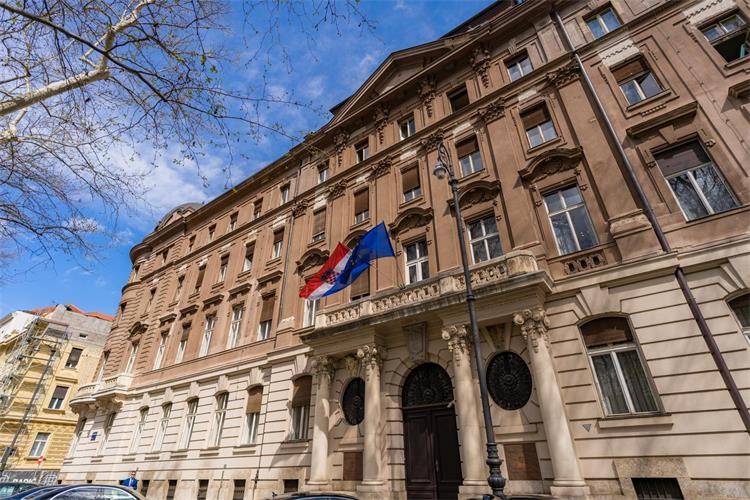High Representative Christian Schmidt's intervention in BIH's electoral law is a success of the Croatian government, while the reelection of Željko Komšić as the Croat member of the state presidency remains a stain in relations between the two countries, the Croatian foreign minister said on Monday.
The international community's High Representative on Sunday used his sweeping Bonn powers to impose changes to the election law concerning the organisation and functioning of the upper House of Peoples of the Parliament of the Federation of Bosnia and Herzegovina, the country's Bosniak-Croat entity, and the decision-making process. The changes are perceived to benefit the Croats in Bosnia and Herzegovina.
Croatian Minister of Foreign and European Affairs Gordan Grlić Radman called this a great success of the Croatian government and Prime Minister Andrej Plenković, saying that they had drawn the attention of their "partners and allies" to the importance of the Croats enjoying equal status as the other two constituent peoples in the country -- the Bosniaks and Serbs.
"The role of this government is recognised because nothing has been done about this over the last 20 years," Grlić Radman said, adding that the High Representative's decision confirmed a return to the Dayton peace agreement and the Constitution.
"Mr Schmidt's response has restored confidence and faith in this agreement."
Noting that Schmidt's decision paves the way towards further reforms, Grlić Radman welcomed the fact that his decision was backed by countries such as the United States and the United Kingdom.
He said that thanks to these changes, the Croats remained a political factor in the country. "Without Croats, without their political participation, there can be no Bosnia and Herzegovina," the Croatian foreign minister said, stressing that what Schmidt did was "right and fair".
Milanović responsible for Komšić's success
Meanwhile, Željko Komšić was again elected the Croat member of the Presidency of Bosnia and Herzegovina in Sunday's general election, thanks to votes in Bosniak-majority areas.
Grlić Radman said that the outvoting of Croats was doing long-term damage to institutional functioning and stability in Bosnia and Herzegovina and to future relations between Croatia and Bosnia and Herzegovina. "This will remain a big burden on our relations. I would call it a stain," he said.
Grlić Radman said that Komšić had received "several tens of thousands of votes" thanks to the rhetoric of Croatian President Zoran Milanović "who did harm to certain processes that could have ended better."
Milanović "confused the High Representative and other actors in Bosnia and Herzegovina" with his statements and probably contributed to "the radicalisation of the political scene" there.
Grlić Radman said that Milanović had made the situation more difficult by insulting the High Representative, and that his threats of blocking Finland's and Sweden's accession to NATO were also a disservice to the Croats in Bosnia and Herzegovina.
The Croatian foreign minister also commented on the defeat of Bakir Izetbegović, whose Democratic Action Party (SDA) no longer has a Bosniak representative on the Presidency, where Šefik Džaferović will now be replaced by Denis Bećirović from the Social Democratic Party (SDP).
Grlić Radman said that Izetbegović had admitted that he was "falsely negotiating" with the Croat parties and that this backfired on him because his "radical policies" were defeated.
Text: Hina
Press releases


